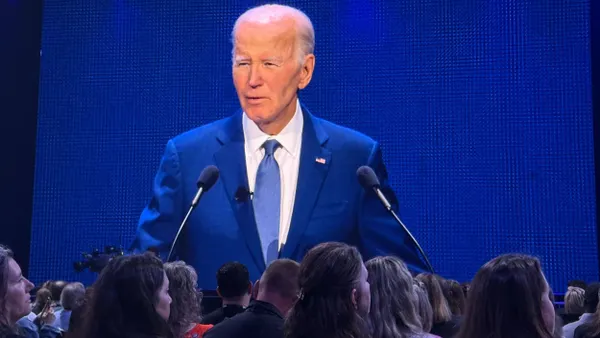Dive Brief:
- A record 17.5 million U.S. employees may be absent the day after the Super Bowl, Monday, Feb. 3, according to survey results from The Workforce Institute at Kronos Incorporated. The day may see the most absences since the group started tracking the stat 15 years ago, they said in a Jan. 28 announcement.
- While most workers had the time approved in advance, 4.7 million are expected to call out sick when they're not. And 40% percent of survey respondents said they favor making the Super Bowl a national holiday, up from 32% in 2019.
- "2020 will be one of the biggest years for workplace absence due to an action-packed calendar of major events and pop culture milestones," said Joyce Maroney, the institute's executive director, in a statement. "Organizations that embrace this through open discussions around time off, self-service scheduling, and company-wide events will find themselves with a significant advantage in the competition to recruit and retain top talent."
Dive Insight:
Unplanned absences can have a serious effect on productivity, research has shown. Some employers have attempted to alleviate scheduling burdens with tech that allows workers to switch shifts on their own. Others have embraced popular events, finding ways to use March Madness to boost morale, for example.
But when it comes to the Super Bowl, still more have decided to grant employees' wish and make it a holiday. A California school district, for example, won't open Monday; it told local media the day was always a low-attendance day for both students and employees. And HR pros generally are on board with that idea: In a 2018 poll, 72% of respondents said they'd like Super Bowl Monday to be a paid holiday.
Among other tips, experts recommend that employers keep expectations for Monday low and foster honesty. "Organizations that are transparent about staffing needs, consider innovative scheduling solutions to help employees arrange coverage with co-workers, and plan engagement-boosting activities related to the game — and other major cultural events — will deliver better business outcomes throughout the entire year," Maroney said in a 2019 statement.











